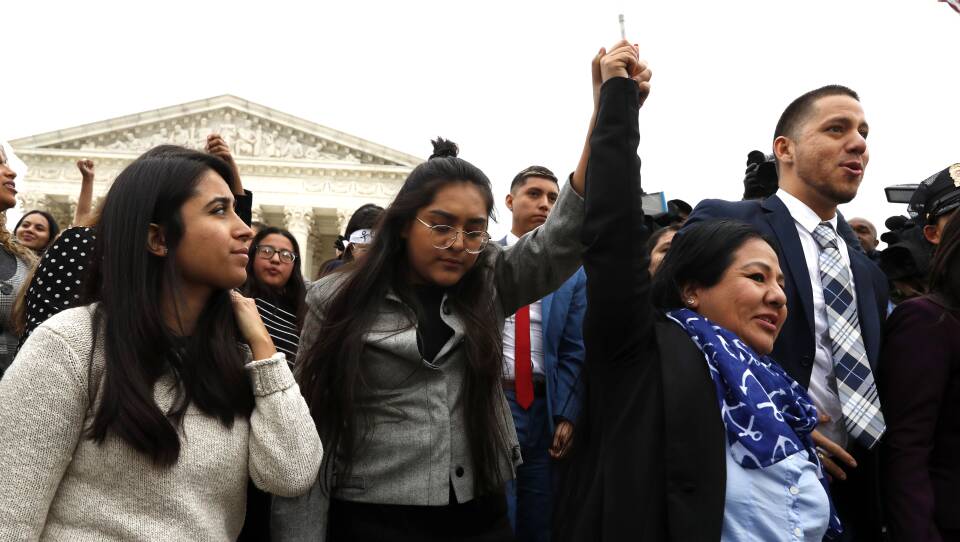I remember the day President Obama signed the executive order creating Deferred Action for Childhood Arrival, or DACA, in June of 2012. It was a bold move born out of the former president’s frustration about Congress’ failure to protect the Dreamers — young people illegally brought into the country by their parents as children. In his public remarks that afternoon, President Obama explained his order as "the right thing to do" and said of the "Dreamers," "They are American in their heart, in their minds, in every single way but one: on paper."
But that paper makes all the difference. I listened to President Obama and worried about what would happen to those "Dreamers" who stepped forward to sign up for DACA and then something changed? Mitchell Santos Toledo was worried too, but he applied for DACA anyway, hoping to be free from the fear of living undocumented. Santos Toledo was 2 when his parents brought him to the U.S. After DACA, he applied for a driver’s license and a Social Security Number. The Harvard Law student told NPR’s Nina Totenberg he cried when he got the social security card in the mail, saying, “The doors of opportunity that little piece of paper allows, it’s life-changing.” Now the question is whether Santos Toledo’s life will be changed again if the Supreme Court rules that President Trump’s reasons for rescinding DACA are valid. Thousands of the DACA enrollees went public outside the High Court hearings last week in rallies where many chanted, “We’re here to stay.” Supporters across several groups, including a roster of businesses, joined the court briefs to support the "Dreamers" by documenting their significant economic contribution.
President Trump said he rescinded DACA because he wanted Congress to do it right, though he said he "had love in his heart for 'Dreamers,'" though as the hearings began, he characterized many as “very tough hardened criminals.” Seven hundred thousand of the 11 million people who are undocumented in this country are "Dreamers." Because of how they got here — through no choice of their own — I always thought they would engender bipartisan compassion. That was true for a while. The original "Dreamers" bill was Republican designed and backed. But as each attempt at legislation failed, ideological positions hardened. Two-party support dissolved. Legislative efforts to address immigration in any form is now a political football in a never-ending game, nowhere close to the goal post. The Court’s decision is expected to be announced next June — right in the middle of the 2020 presidential campaign — guaranteeing that politics, far more than reason, will drive Congressional response to the ruling.
President Obama symbolically signed his DACA executive order on the 30th anniversary of the Supreme Court decision barring public schools from charging undocumented immigrant children tuition. Once again, the fate of undocumented young people like Mitchell Santos Toledo is in the hands of the High Court. Santos Toledo is set to graduate from Harvard Law school next spring, likely weeks before finding out if he can continue living the only life he’s ever known. Wherever you stand on the issue, it’s unconscionable we’ve let it come to this.
Former President Obama spoke out when President Trump announced the rescinding of DACA. “Ultimately,” he said, “This is about basic decency. ... It’s about who we are as a people — and who we want to be.” But that’s one thing the Supreme Court can’t decide.





